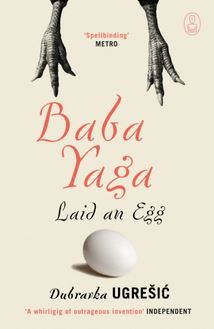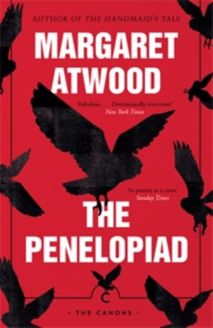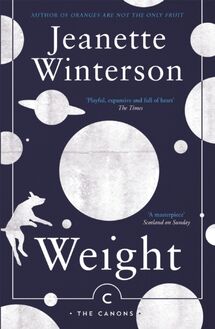-
 Univers
Univers
-
 Ebooks
Ebooks
-
 Livres audio
Livres audio
-
 Presse
Presse
-
 Podcasts
Podcasts
-
 BD
BD
-
 Documents
Documents
-
- Cours
- Révisions
- Ressources pédagogiques
- Sciences de l’éducation
- Manuels scolaires
- Langues
- Travaux de classe
- Annales de BEP
- Etudes supérieures
- Maternelle et primaire
- Fiches de lecture
- Orientation scolaire
- Méthodologie
- Corrigés de devoir
- Annales d’examens et concours
- Annales du bac
- Annales du brevet
- Rapports de stage
La lecture à portée de main
Vous pourrez modifier la taille du texte de cet ouvrage
Découvre YouScribe en t'inscrivant gratuitement
Je m'inscrisDécouvre YouScribe en t'inscrivant gratuitement
Je m'inscrisEn savoir plus
Vous pourrez modifier la taille du texte de cet ouvrage
En savoir plus

Description
Informations
| Publié par | Canongate Books |
| Date de parution | 30 octobre 2008 |
| Nombre de lectures | 0 |
| EAN13 | 9781847674104 |
| Langue | English |
| Poids de l'ouvrage | 1 Mo |
Informations légales : prix de location à la page 0,0400€. Cette information est donnée uniquement à titre indicatif conformément à la législation en vigueur.
Extrait
THE FIRE GOSPEL
MICHEL FABER
Thanks to Eva, always .
For I testify unto every man that heareth the words of the prophecy of this book , If any man shall add unto these things, God shall add unto him the plagues that are written in this book .
John, aka Iohannes, ‘of Patmos’, i.e. of unknown origin but resident on Patmos at time of writing, circa 95 or 96 AD, or possibly 68 or 69 AD, or possibly some other time, from an unnamed document later known as The Apocalypse, aka Revelation, reprinted in The Bible (1611), translated purportedly by Thomas Ravis, George Abbot, Richard Eedes, Giles Tomson, Sir Henry Savile, John Peryn, Ralph Ravens and John Harmar, but substantially based on The Bible (1526) translated by William Tyndale [uncredited].
Contents
Title Page Dedication Genesis Exodus Malchus Numbers Every Word That Proceedeth Out Of The Mouth Judges More Than Heart Could Wish The Multitudes Acts Revelations Interlude: A Prophecy Lamentations And His Chains Fell Off From His Hands The People Epilogue: Amen Also By Michel Faber Copyright
Genesis
The museum curator swung open another antique door and, as if on cue, a lion’s head fell off its body. A big stone lion’s head, carved centuries ago: smack on the floor. Splinters of ceramic tile jumped up from the impact. The head rolled over and came to rest near the left paw, open-mouthed, front fangs smashed off, angry eyes staring up past the stump of its own neck to the ornate ceiling above.
‘Unbelievable,’ said Theo, feeling that some expression of awe was called for.
‘No, not so unbelievable,’ said the museum curator, glumly. ‘The looters tried also to take that lion’s head. They tried for a long time, with axes, crowbars, even guns. One of them shot the lion’s neck and received a wound in the leg from the bouncing bullet. His friends only laughed. Then they moved on to the next thing.’
Theo walked into the denuded chamber, eyes lowered to the floor, as though he was humbled by the mighty sorrow of Allah in this desecrated sanctum, or at least admiring the exquisite ornamental tiles. In truth, he was on the lookout for traces of blood. There had been killing in this room, as well as the mishap with the looters’ ricochet. But the place had been swept and mopped since then. Not very fastidiously, but enough. Here and there, a tiny glint of broken glass, a crumb of pottery, a wisp of fabric.
The curator, too, had been injured in the fracas. He had an untidy white bandage wrapped around his head, like a nappy, with a pinkish blush of imperfectly contained blood in the centre. It was a ridiculous mismatch with his dark-grey double-breasted suit, rich brown skin and expensive shoes. Why sport such a World War One napkin, when he could surely have got himself patched up with a few stitches and discreet Steri-Strips?
Making an exhibition of himself , Theo thought – knowing he was being outrageously unsympathetic. This guy was a bona fide victim, no doubt about that. But there was a fine line between victims of tragic circumstance and born losers. Born losers were irritating as hell: shuffling around with their hangdog expressions and untidy bandages. They attracted trouble and it didn’t matter whether there was a war on or not, they would end up with their halo of undeserved suffering. Theo suspected that the curator was one of these characters. The grand injustice of war and the bloodied bandage on his head had accorded him the status of martyr and he was playing his role as best he could. The melancholy fatalism that newspaper journalists liked to describe as ‘quiet dignity’ radiated from him with every word and gesture.
I didn’t trash your fucking country , thought Theo, and was ashamed of thinking it, but it was true. He was a linguist and research fellow from the Toronto Institute of Classical Studies, not some redneck Yankee soldier. In any case, it had been Iraqis who looted this museum, not Americans.
‘Here we had manuscripts from the Ottoman empire,’ said the curator, in a dolorous, soft-spoken monotone. ‘We had scrolls from the Abbasid dynasty. We had an edition of the Qur’an, from 1787, inscribed by Catherine the Great.’
‘Terribly sad,’ said Theo.
‘We had a clay tablet from Uruk, one of the most important cities in Mesopotamia, with a text in cuneiform that was not even yet deciphered.’
‘Tragic,’ said Theo. Please don’t tell me how important Uruk was; I’m not stupid , he thought. And why did the curator insist on speaking English, anyway, when Theo had greeted him in perfectly good Arabic on the phone? It was as if the guy wanted to emphasise his humiliation in the face of the post-invasion catastrophe.
‘We had wedding contracts from the seventh century BC,’ lamented the curator, raising his head, so that the bandage rumpled up against his collar. ‘From the time of Sennacherib.’
‘Awful,’ said Theo. He had an uneasy feeling that if he didn’t take charge of the conversation soon, the curator would be compelled to remind him that Iraq was the cradle of civilisation, that it had once been a peaceful melting pot of learning and tolerance when most other nations were still in their brutish infancy, blah blah blah. All of which was true, but Theo was in no mood to hear it coming from the doleful little man with the nappy on his head. ‘But listen, Mr Muhibb, if it doesn’t sound too … ah … brusque , maybe we should focus on what’s still here. I mean, that’s why I’m here, after all.’
‘They took everything, everything,’ bewailed the curator, wringing his hands. ‘There is nothing here remaining that a looter would deem worth to carry away.’
Theo sighed. He was accustomed to these protestations. They were like talismanic chants for the benefit of any eavesdroppers who might be planning additional raids. In order for a visitor to find out what treasures had been saved, what exhibits had been squirrelled away in a basement somewhere, or stashed pre-emptively in the museum staff ’s own homes, it was necessary to win the curator’s trust, which would require hours of conversation and dinner and wine, and then the truth would emerge, artefact by artefact, and finally Theo could re-state the Institute’s generous offer. Theo didn’t know if he had the patience to go through with the rigmarole. For a start, he was trying to slim down, and a big, multi-course Arabic dinner would undo his efforts to lose his gut. Also, his inclination to forge convivial bonds with his fellow men was not exactly fervent at this juncture. His girlfriend had just told him, forty-five minutes ago, by mobile phone, that she needed some space to sort out her priorities. Her chief priority, he suspected, was a ruggedly handsome wildlife photographer called Robert.
‘I’ll be back in Toronto on Friday,’ he’d said, broiling in the Mosul traffic on the way to the museum.
‘I need some space now ,’ she’d said.
‘Well, uh … I don’t understand how I’m preventing you from getting it,’ he’d said. ‘I mean, I’m here, and you’re there, alone. At least, I think you’re—’
‘I need you to understand that when you get back, things may not be the same.’
‘Things?’
‘Us.’
‘So … why the suspense? Why not tell me now?’ Go on , he’d thought. Tell me you don’t want an overweight academic when you can have a musclebound photographer who stalks fucking antelopes .
‘I have nothing to tell you. I just need some space, that’s all.’
‘Well … uh …’ (he’d sneezed, an allergic reaction to the diesel exhaust polluting the humid air) ‘be my fucking guest.’
Now, following the curator through the looted museum, Theo had an urge to grab him by the lapels of his suit and shout into his face. Do you want the money or don’t you? It’s very simple. We display your treasures in our Institute for five years, in exchange for a nice big restoration package. At the end of the five years, Iraq is peaceful again, you’ve got a repaired museum, and you get your stuff back. Deal or no deal?
‘Excuse me,’ said the curator, and motioned for them to stand still and listen. Faintly, a knocking could be heard from the front end of the building. (The doorbell had ceased to function; the PA system had been ripped out of the walls, leaving wires dangling down from the top corners of each room.)
‘Excuse me,’ repeated the curator. ‘Please wait here a moment.’ And he hurried to answer the summons.
Theo sat down on a polished wooden cabinet which had been toppled on its side and gutted of its drawers and index cards. He looked around the room; it was empty except for the jagged remains of a glass display case, a few wood shavings, and, in the far corner, an impossibly heavy Assyrian winged bull whose pedestal smelled of piss and disinfectant. He heard the museum’s massive outside door opening and shutting. He wished he could light up a cigarette while he waited. It seemed absurd that in a place which had recently been gutted by thieves and yahoos, he should feel constrained not to befoul the air with a puff of tobacco smoke.
Suddenly, all the windows in the building exploded. There were three or four tremendous bangs, the first of which buffeted him like a hurricane gust. An impression of fierce heat and light came through from the outside world. Theo blinked. His spectacles had saved him from being blinded. His lap was sprinkled with tiny fragments of broken glass; they fell out of his hair when he looked down.
He stood up, and had the presence of mind to resist the urge to dust himself off with his naked palms. He tried to shake like a dog. Discovered that he was shaking already.
He moved towards the exit, then thought better of it. There were shouts out there, and more loud bangs. The curator and his absurd bandage were probably splattered all over the street, plastered to the walls and vehicles like upflung mud or fresh graffiti. Theo wished he’d been a little warmer to him, not quite so guarded. It seemed sinful to have considered somebody a pain in the ass two minutes befo
-
 Univers
Univers
-
 Ebooks
Ebooks
-
 Livres audio
Livres audio
-
 Presse
Presse
-
 Podcasts
Podcasts
-
 BD
BD
-
 Documents
Documents
-
Jeunesse
-
Littérature
-
Ressources professionnelles
-
Santé et bien-être
-
Savoirs
-
Education
-
Loisirs et hobbies
-
Art, musique et cinéma
-
Actualité et débat de société
-
Jeunesse
-
Littérature
-
Ressources professionnelles
-
Santé et bien-être
-
Savoirs
-
Education
-
Loisirs et hobbies
-
Art, musique et cinéma
-
Actualité et débat de société
-
Actualités
-
Lifestyle
-
Presse jeunesse
-
Presse professionnelle
-
Pratique
-
Presse sportive
-
Presse internationale
-
Culture & Médias
-
Action et Aventures
-
Science-fiction et Fantasy
-
Société
-
Jeunesse
-
Littérature
-
Ressources professionnelles
-
Santé et bien-être
-
Savoirs
-
Education
-
Loisirs et hobbies
-
Art, musique et cinéma
-
Actualité et débat de société
- Cours
- Révisions
- Ressources pédagogiques
- Sciences de l’éducation
- Manuels scolaires
- Langues
- Travaux de classe
- Annales de BEP
- Etudes supérieures
- Maternelle et primaire
- Fiches de lecture
- Orientation scolaire
- Méthodologie
- Corrigés de devoir
- Annales d’examens et concours
- Annales du bac
- Annales du brevet
- Rapports de stage















